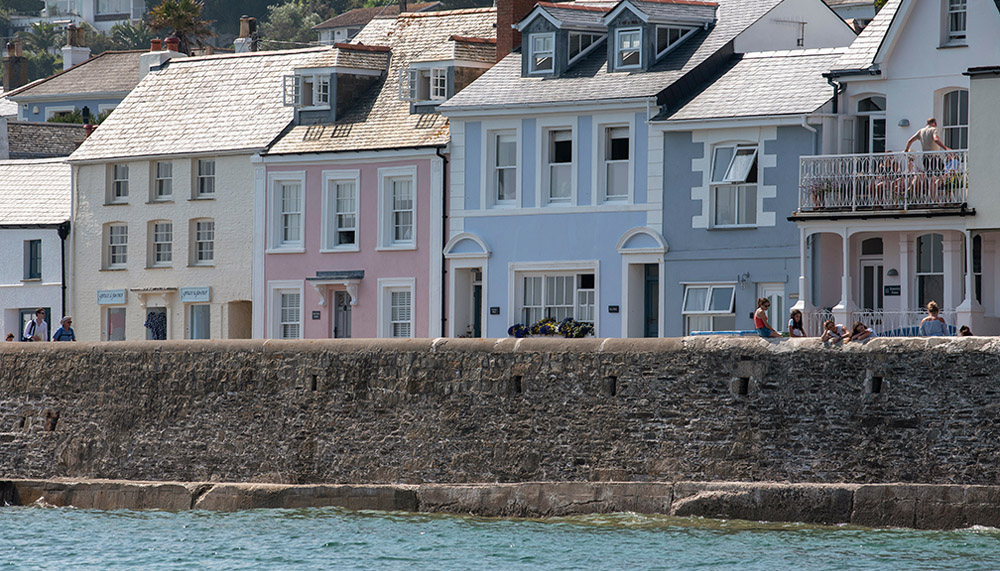The UK government has unveiled new plans to require planning permission for holiday homes in England. Tightening up the legislation is being considered to stop local people from being pushed out of their community because of increasing numbers of short-term lets.
The proposal will impact landlords who have considered turning their properties into holiday lets in tourist hotspots. It will also affect families and individuals who plan to convert homes into short-term lets to keep pace with the rising cost of living with the extra rental income.
 © Peter Titmuss / Shutterstock.com
© Peter Titmuss / Shutterstock.com
The initiative has been announced by the Department for Levelling Up, Housing and Communities. However, before it becomes law, the government will carry out a consultation exercise on the changes.
It will also discuss whether the scheme should be more flexible. One suggestion is to allow homeowners to let out their home for a specific number of nights each year without planning permission.
Holiday lets in Wales
People buying second homes and offering them for holiday rentals has been a bone of contention in many parts of the UK for years. In Wales, the existing holiday let rules are being amended and enforced to crack down on second home ownership.
The changes in the Welsh law were announced in March and came into force on 1st April. The Welsh government has amended the criteria for holiday let properties to qualify for business rates.
The government is aiming to control the number of second homes in Wales amid ongoing complaints that local communities are overwhelmed by large numbers of holiday homes.
Previously, holiday lets used as a business could pay business rates rather than council tax. In some cases, this meant no tax was paid for second homes in some counties.
Now, the “availability threshold” for homes to qualify as a holiday let has increased from 140 to 252 days per year. In addition, the occupancy threshold has gone from 70 to 182 days. The local authority has also been empowered to increase council tax premiums to 300%.
Some landlords in the Welsh tourism industry fear the laws in Wales have gone too far. They claim genuine holiday lets will suffer, as they will end up paying thousands in council tax. There are fears some could even be forced out of business because it will no longer be profitable.
Scottish holiday lets
In Scotland, a short-term accommodation licence is required for holiday lets. The law changed on 1st October 2022, when local authorities in Scotland were tasked with putting a procedure in place to start receiving and processing short-term let licence applications.
At the time, a furore resulted when it was revealed the licences may take between six and 12 months, or even longer, to come through. People who hadn’t had paying guests at their holiday let before 1st October 2022 could not do so without a relevant licence.
The landlord also needed to update their welcome pack to include a certified copy of their licence, details of how to call the emergency services and fire, gas and electrical safety information, such as a copy of the gas safety report and the Electrical Installation Condition Report.
Northern Ireland
Strict legislation has been in place for more than 30 years. The Tourism (Northern Ireland) Order 1992 stipulates that any person who provides tourist accommodation needs a valid certificate issued by Tourism Northern Ireland,
If they don’t have a certificate, they are committing an offence. If convicted, they could be subject to a fine or imprisonment.
Airbnb responds to new legislation
The latest announcement has sent shockwaves through the property market. Airbnb, the holiday company specialising in home letting for a short-term visit, said it “cautiously welcomed” the news of new legislation in England. However, it stressed that a “balance must be struck” to ensure people who were letting out their space for tourists wouldn’t be negatively impacted.
Airbnb supported part of the legislation that called for a register for short-term holiday rentals in tourist areas, but feared property owners may suffer a financial loss in the long term.
According to Airbnb, around 40% of their members in the UK said the extra income helped them to survive the rising cost of living. The organisation has pledged to work with the government to ensure the legislation is satisfactory.
The Renters’ Reform Coalition believes more local people should have access to local homes at an affordable price, with families desperate to rent or buy a home close to their workplace being given priority.
The government has said local authorities can opt not to use the planning controls, which are part of the levelling up and regeneration bill going through Parliament. The planning changes, if approved, would be introduced later this year through secondary legislation.
Culture secretary Lucy Frazer said the latest “ultra-flexible short term lets” gave tourists more choice, but this shouldn’t be at the expense of local people who couldn’t afford their own home in the place where they had grown up.
Landlords providing short-term lets for holiday homes with furniture packs should keep up to speed with the latest property market news to ensure they don’t miss vital changes that will impact their livelihood.
